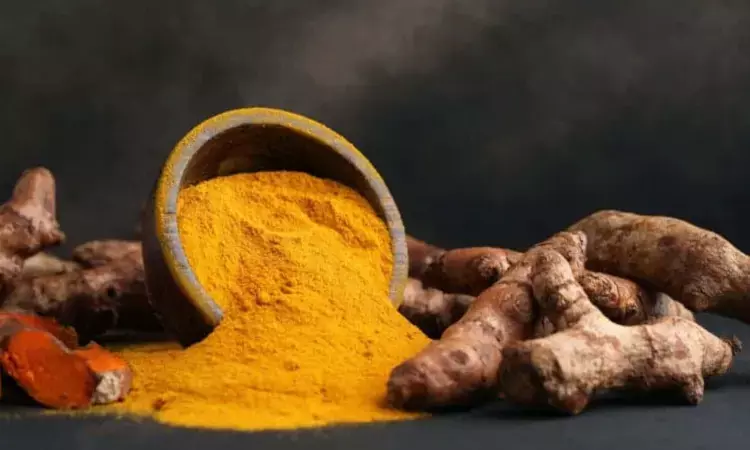- Home
- Medical news & Guidelines
- Anesthesiology
- Cardiology and CTVS
- Critical Care
- Dentistry
- Dermatology
- Diabetes and Endocrinology
- ENT
- Gastroenterology
- Medicine
- Nephrology
- Neurology
- Obstretics-Gynaecology
- Oncology
- Ophthalmology
- Orthopaedics
- Pediatrics-Neonatology
- Psychiatry
- Pulmonology
- Radiology
- Surgery
- Urology
- Laboratory Medicine
- Diet
- Nursing
- Paramedical
- Physiotherapy
- Health news
- Fact Check
- Bone Health Fact Check
- Brain Health Fact Check
- Cancer Related Fact Check
- Child Care Fact Check
- Dental and oral health fact check
- Diabetes and metabolic health fact check
- Diet and Nutrition Fact Check
- Eye and ENT Care Fact Check
- Fitness fact check
- Gut health fact check
- Heart health fact check
- Kidney health fact check
- Medical education fact check
- Men's health fact check
- Respiratory fact check
- Skin and hair care fact check
- Vaccine and Immunization fact check
- Women's health fact check
- AYUSH
- State News
- Andaman and Nicobar Islands
- Andhra Pradesh
- Arunachal Pradesh
- Assam
- Bihar
- Chandigarh
- Chattisgarh
- Dadra and Nagar Haveli
- Daman and Diu
- Delhi
- Goa
- Gujarat
- Haryana
- Himachal Pradesh
- Jammu & Kashmir
- Jharkhand
- Karnataka
- Kerala
- Ladakh
- Lakshadweep
- Madhya Pradesh
- Maharashtra
- Manipur
- Meghalaya
- Mizoram
- Nagaland
- Odisha
- Puducherry
- Punjab
- Rajasthan
- Sikkim
- Tamil Nadu
- Telangana
- Tripura
- Uttar Pradesh
- Uttrakhand
- West Bengal
- Medical Education
- Industry
Is curcumin beneficial for blood pressure reduction? Study sheds light

Iran: Curcumin, when administered for a long duration >= 12 weeks, may improve diastolic blood pressure (DBP), a recent study published in Nutrition, Metabolism and Cardiovascular Diseases has shown.
Curcumin is reported to have several biological activities and pharmacological effects, including antioxidant, anti-inflammatory, capabilities, and hepatoprotective effects. Arash Karimi, Ardabil University, Of Medical Sciences, Ardabil, Iran, and colleagues summarized data from available clinical trials on the effects of curcumin supplementation on systolic BP and diastolic BP by conducting a systematic review and dose-response meta-analysis.
For this purpose, the researchers searched multiple databases using related keywords till November 2022. They chose the studies that examined the effects of curcumin on diastolic blood pressure and systolic blood pressure. The meta-analysis included seventeen eligible studies with a total sample size of 1,377 participants.
The authors revealed the following findings:
- The findings of the meta-analysis did not indicate any significant effect of curcumin on SBP (WMD = -0.06 mmHg) and DBP (WMD = -0.18 mmHg).
- In the dose-response analysis, the dose and duration of curcumin supplementation were found to be non-significantly associated with the reduction of SBP and DBP.
- Subgroup analysis revealed a significant reduction only in DBP levels (WMD: -0.76 mmHg) but not SBP in studies with ≥12-week supplementation.
- A significant reduction in SBP (WMD: -1.55 mmHg) and DBP (WMD: -1.73 mmHg) was noticed by curcumin supplementation in studies performed on women.
- Curcumin supplements in doses of 80 to 2400 mg/day over 6 and 24 weeks did not significantly change systolic blood pressure in comparison with the control group.
- Curcumin supplements in doses of 80 to 2400 mg/day over 6 and 24 weeks did not significantly change systolic blood pressure in comparison with the control group.
"The current study indicates that curcumin consumption may improve DBP when administered in long durations ≥ 12 weeks," the researchers wrote. "However, more trials are needed to confirm these findings."
Reference:
The study titled, "Effects of curcumin on blood pressure: A systematic review and dose-response meta-analysis," was published in Nutrition, Metabolism and Cardiovascular Diseases.
DOI: https://doi.org/10.1016/j.numecd.2023.07.003
Dr Kamal Kant Kohli-MBBS, DTCD- a chest specialist with more than 30 years of practice and a flair for writing clinical articles, Dr Kamal Kant Kohli joined Medical Dialogues as a Chief Editor of Medical News. Besides writing articles, as an editor, he proofreads and verifies all the medical content published on Medical Dialogues including those coming from journals, studies,medical conferences,guidelines etc. Email: drkohli@medicaldialogues.in. Contact no. 011-43720751


